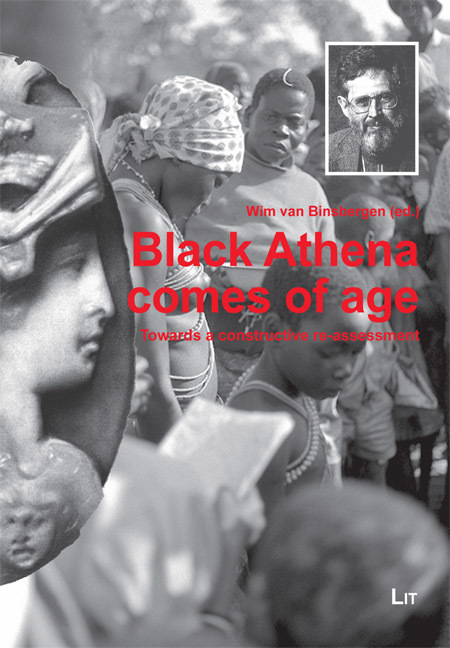Black Athena Comes of Age: Towards a Constructive Re-assessment
Goodreads
Wim M.J. van Binsbergen
overview
What prompted Martin Bernal, who specialized in modern Chinese intellectual history, to turn to the ancient history of the Eastern Mediterranean basin? Why did Bernal set out to rewrite two millennia of European intellectual history, exposing the 18th-century rise of Altertumswissenschaft as a critical phase in the collective, Euro-centric denial of what he calls the 'Afro-asiatic roots of European civilization?' How could his multi-volume book Black Athena (1987, 1991) create havoc - in the form of a heated and protracted, international debate - in the fields of African studies, ancient history, classical archaeology, Egyptology, comparative linguistics, the history of ideas, and human biology? How could Martin Bernal become a reluctant hero of African American intellectuals identifying as Afro-centrist? Why did this condemn him to the hatred of conservative American classicists and historians of ideas? Why was he tempted to overplay his hand? What errors did he commit in the fields of epistemology, historiography, and historical linguistics? Why, yet, is Martin Bernal largely right - if often for the wrong reasons? With the publication, in 1996, of the devastatingly critical Black Athena Revisited (eds. Mary R. Lefkowitz and Guy MacLean Rogers), the impression was created that the Black Athena thesis had been conclusively refuted. However, this present volume has sought to restore the balance. Bernal himself has contributed three innovative and illuminating pieces to the collection, responding to critics, systematizing his linguistic claims, and applying the Black Athena thesis to sub-Saharan Africa. By offering answers to the above questions, it takes the international debate to the next constructive phase. Black Athena Comes of Age shows that incisive and multifarious criticism of Bernal's position and methods is necessary and often justified. Yet, at the turn of the 21st century, the formulation of a non-Euro-centric, multi-centric model of global cultural history is of vital importance. It is here that Martin Bernal shows the way as none before him. Specifically, the implications of his visions for sub-Saharan Africa constitute a major intellectual challenge. Stressing massive intercontinental interactions and vital global contributions of the African peoples, they also invite us to redress the present-day negative image of Africa. (Series: Afrikanische Studien/African Studies - Vol. 44)